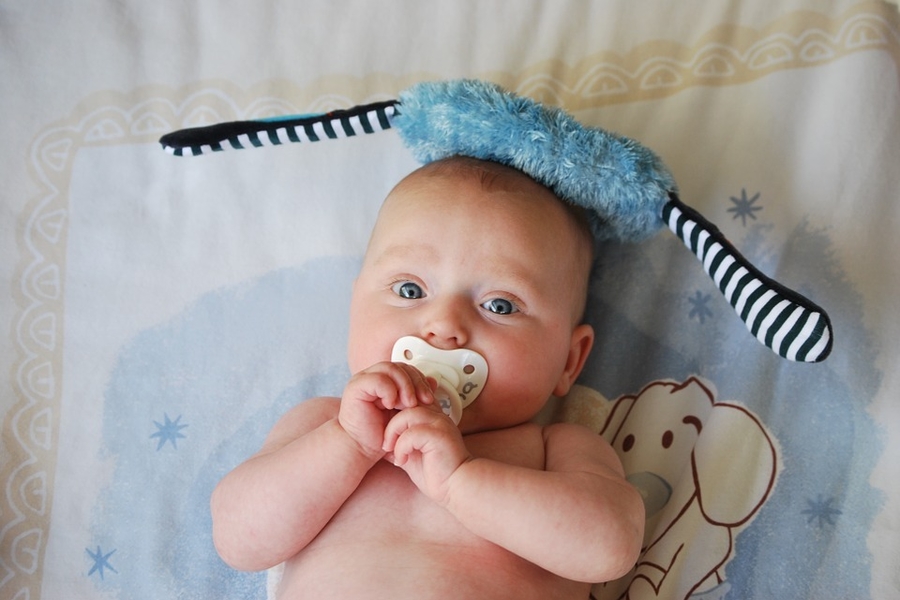
Baby Weight Gain: What Helps And How
22 May 2018 | 4 min Read
Dr. Indu Khosla
Author | 10 Articles
How much should a baby weigh after birth? New-born weight after completing a full term normal pregnancy (38 to 40 weeks) usually ranges between 2.5kg and 3.5 kg. Premature babies and babies who have growth retardation in the womb weigh less than 2.5 kg. The weight of the preterm baby varies with the extent of prematurity.
Various factors in pregnancy such as the mother’s health and nutrition, blood pressure and diabetes in the mother, chronic diseases premature delivery, a twin pregnancy, genetic problems, etc. have a significant effect on the weight of the baby.
A normal full-term baby loses some weight (5% to 10%) in the first week after birth. It takes around 10 days to 2 weeks for the baby to regain the lost weight. A preemie or weak baby takes 2-3 weeks to regain its birth weight. Weight lost in the initial days after birth occurs due to loss of fluids from the baby’s body.
Whatever the weight may be, a baby that is active, sleeps and feeds well; passes good amount of urine and stools; and shows normal developmental milestones at appropriate age, indicates having received adequate and timely nutrition.
A Baby not gaining adequate weight needs to be examined for insufficient nutrition, chronic diseases, genetic problem, etc. and requires immediate medical attention.
What to give a baby for weight gain


Mother’s milk is the best food for a baby and all babies should be exclusively breast fed for at least 6 months. It provides all the nutrients that are essential for the baby’s physical and mental growth and weight gain.
Colostrum or the first secretion before breastmilk appears from the mother’s breast is the first food for a baby after birth. It is very important that the baby gets colostrum as it is high in proteins, vitamins and antibodies which are necessary for strong health and immune system.
Baby weight gain is rapid between 6 months to 9 months of age and babies generally triple their birth weight at 1 year of age. After the first year weight gain is slow and children on an average gain 1- 3 kg per year.
High calorie foods for baby


Babies require solid food in addition to milk after 6 months of age. In some babies, the intake of milk decreases with introduction of solid foods.
A baby’s food should be high in calories and nutrients. Some of the baby weight gain food items that you should include in the baby’s diet are as follows:
Weaning can be started with fruits and vegetables which include sweet potato, banana, apple, avocado, etc. They not only provide vitamins, but also provide carbohydrates that provide energy and help in weight gain. Cereals like rice, lapsi , nachini , etc can be introduced slowly after fruits have been introduced.
Cereals and pulses such as rice, whole wheat bread, oats, and lentils provide good amount of proteins and other nutrients that help in increasing the baby’s weight.
Doctors recommend fatty foods for babies to gain weight up to the age of 2 years. These include butter, cheese, peanut butter, olive oil, flax seed oil, coconut oil, sunflower oil, etc.
Eggs, fish and meat are rich in proteins and good fats that help in baby weight gain and can introduced after 9-10 months of age.
Dairy products such as milk, cream, paneer, yogurt and whole milk (not skimmed milk) provide calcium, proteins and fats for weight gain in babies.
Fibre is equally important in the babies diet and helps to prevent constipation.
Do not feed the baby canned juices or food items that contain artificial sweeteners. Frequent feeding of these food items increases the chances obesity in babies and toddlers.
If you are not sure about a particular food item, check with a paediatrician first.
Also read: Understanding Baby Weight Gain
A


Related Topics for you
Suggestions offered by doctors on BabyChakra are of advisory nature i.e., for educational and informational purposes only. Content posted on, created for, or compiled by BabyChakra is not intended or designed to replace your doctor's independent judgment about any symptom, condition, or the appropriateness or risks of a procedure or treatment for a given person.
